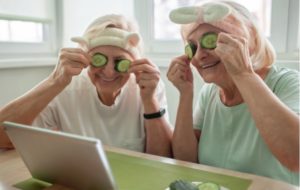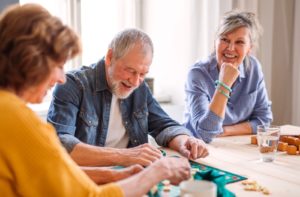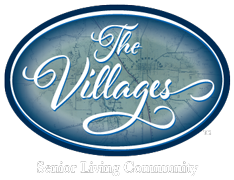Motivating & Encouraging Seniors
Seniors need exercise and social activity to enrich their lives. But they might not always feel motivated to engage with social events or exercise routines.
Motivation is a curious aspect of human nature, as many things can influence it. Every day we experience extrinsic and intrinsic motivation. For example, an external motivation may be entering a contest to win a prize. Whereas an internal motivation may be completing a puzzle because you like the challenge.
When we’re unmotivated to participate, it may be external or internal. Aging adults can feel unmotivated for many reasons. The physical effects of aging can play a significant role, but there’s more to it.
Motivating participation in seniors requires a multi-faceted approach.
Social Connections
Having abundant social connections improves positive health-seeking behavior. Notably, with more community social connections, seniors will feel comfortable joining activities and find more enjoyment.
One valuable social connection is an activity buddy or exercise buddy. Whether it’s always the same activity or a friend encouraging you to try new things, participating is easier when you don’t feel alone. If your loved one feels isolated, you might encourage them to find an activity buddy—or be their buddy until they find more connections.
Modeling Activity
Modeling is more than encouraging copying. By sharing an experience, you show your loved ones you are invested in them. Modeling participation is a stronger motivator than telling someone to participate more. Like having an activity buddy, joining in offers support and camaraderie.
You might enjoy one-on-one activities or join a group together. If possible, try mixing a bit of both!

Access to Variety
When you think of the word activity, what comes to mind? Is it working out at the gym? Joining a sports team? There are many types of activities, and only some are physical. Unfortunately, aging affects many seniors’ physical wellness, discouraging activities with excessive physical movement.
Motivating seniors to participate begins with variety. For example, book clubs, tea time, Nordic walking group, or bowling league. Access to more types of activities makes it easier for seniors to engage with things they love.
Although virtual connections shouldn’t be the only option, virtual and online activities can offer connections in difficult times. Virtual activity can be a venue for social connection, such as movie-watching groups, sharing craft ideas, or video calling.
Sleep Quality
Many older adults don’t get enough sleep, with insomnia particularly prevalent in those age 60 and older. It can be a combination of medications, aches, or poor nighttime routines. Yet, sleep is essential for our well-being. When we feel fatigued, we’re less motivated.
Sleep is crucial for many physical and mental health functions, including:
- Concentration
- Heart health
- Depression
- Metabolism
- Inflammation
- Mood and emotions
- Social interactions
- Reflexes & reaction time
When seniors experience sleep loss, participating in activities they love can be more challenging. Ironically, being physically active during the day is essential for a healthy sleep routine. But there are plenty of other ways to improve sleep hygiene, such as:
- Removing electronics from the bedroom
- Avoiding alcohol before bedtime
- Creating a sleep-friendly space (quiet, dark, comfortable temperature, etc.)
- Avoiding caffeine in the afternoon or evening
- Developing a consistent sleep schedule (weekdays & weekends)
- Avoiding large meals or snacks before bedtime
Manageable Goals
Many people enjoy the challenge of completing a goal or difficult task. It can inspire more challenges and the urge to try new things. But unfortunately, failing can have the opposite effect. When we bite off more than we can chew, we tend to avoid trying again in case we choke.
Manageable goals can help seniors feel accomplished and encourage their independence. Simple tasks don’t need to be dull. Whether it’s a quirky craft, a simple set of stretches, or finishing a meal, completing a goal can be a motivating achievement.
Physical Activity
Encouraging physical activity is crucial, as exercise promotes better sleep, improves energy levels, and reduces feelings of stress or depression. Older adults need 300 minutes of moderate activity every week (or 60 minutes 5 days a week).
Not all physical activity needs to be an intense workout. Instead, simple but continuous movement can keep seniors physically active. From dancing to water aerobics, yoga to gardening, light walks to balance exercises, introducing various movement activities can keep activity interesting for seniors.
The goal is to move more and sit less. Even moving around their apartment can be a manageable goal. Then, they can add other movement goals to match their comfort.
Motivating Participating Through Community
Motivating senior participation begins with a support system. When people feel connected to their community and comfortable socializing, it encourages them to try new things. Or try some of the same old things again and again.
Suppose your loved one is looking for a new activity buddy or access to various social events. In that case, they might benefit from our comprehensive community. The Villages of Murfreesboro offers multiple levels of care for seniors who want to keep living independently or need additional services.
Contact us to learn more about our commitment to our community.




